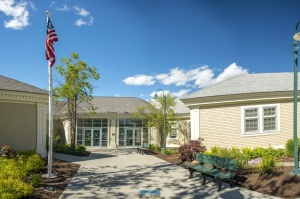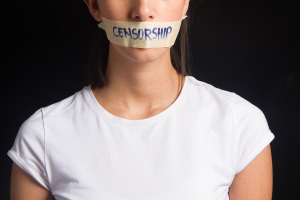Christians Need to Fight for Religious Freedom for All, Not Just Themselves, Russell Moore Says
WASHINGTON – Christians in the United States have too often been only concerned about religious freedom for themselves, rather than fighting for religious freedom for all, Russell Moore, president of the Ethics and Religious Liberty Commission, argued at a Thursday symposium, "Faith, Culture & Religious Freedom in the 21st Century."
"One of the mistakes people made in the past is this kind of majoritarian understanding, maintaining our own rights without diligently fighting for religious liberty for all persons," he said.
Moore, a Southern Baptist theologian, added that evangelical Christians in particular have done a poor job of paying attention to the religious freedom of others.
"Evangelical Christians need to be the first people in any given community," he continued, "to stand up and say, 'we don't want the mayor to have the power to keep a mosque out of here simply because its a mosque.'"
Moore was joined in the spirited discussion by Jennifer Marshall, director of domestic policy studies at Heritage Foundation; Kirsten Powers, a columnist for The Daily Beast and a USA Today and Fox News contributor; Timothy Shah, associate director of the Religious Freedom Project at the Berkley Center for Religion, Peace and World Affairs at Georgetown University; and Ross Douthat, a columnist for The New York Times. The panel was moderated by Andrew Walker, director of policy studies for ERLC, and hosted by ERLC and Manhattan Declaration.
The discussants covered both religious persecution abroad and domestic religious freedom concerns. The concerns were also balanced by acknowledgments of the areas where the United States has done well at protecting religious freedom. The heavy topic was occassionally enlivened with jokes about Chick-fil-A, polygamy and Catholic/evangelical differences.
Douthat argued that it is not sufficient for Christians to argue for religious freedom. They must, at the same time, make arguments in favor of the religious views they are trying to protect, because a majority may come to the conclusion that those views are so awful they do not deserve protection.
"America's First Amendment tradition of religious tolerance will not suffice to protect Christians if the completely dominant cultural view is that the traditional Christian view of sex is horrifically bigoted, awful and life destroying," he said.
Powers added that Christians should expect to be hated for their views, and warned against self-pity and conflating hatred with religious persecution.
"Sometimes I hear Christians talking in a very self-pitying way, 'woe is us because this is the way society is going.' ... That's not religious persecution by the state. ... We need to understand, people not liking you is not religious persecution."
Shah said his biggest fear is that the government will systematically favor secular views over religious views. It is "not alarmist" he said to worry that the United States has entered a period in which the government is using its coercive authority to show favoritism toward one set of views in society. Looking globally, Shah said that governments that do this have some of the biggest problems: "Societies destroy themselves when they limit the religious freedom of their citizens."
"Imagine that opposition to homosexuality is treated the same as racism," he said. And, there is a "systematic, government enforced, sanctioned favoritism toward one cluster of views. ... What happens when the government adds its coercive and teaching authority to ... say ... we are not worthy, reasonable, liberal, democratic citizens? ... This is already happening."
You can watch a video of the discussion at the ERLC website.




























